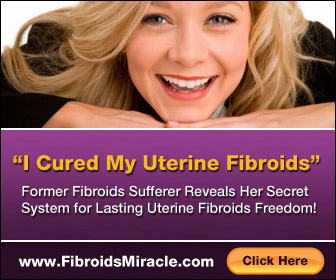Finding a Cure for Uterine Fibroids
Having uterine fibroids is not rare and is simple to detect. Unfortunately, it is not as easily curable and treatable with modern medicine. This does not mean that it is impossible for a woman with fibroids to find any cure. There are medications and procedures that can ease the symptoms and prevent the worsening of fibroids. The risks of the fibroids causing other health problems can also be reduced through medications.
From Traditional to Modern Medicine
What symptomatic fibroids patients commonly complain about are pain and bleeding. The intensity of the pain and the volume of bleeding vary from one patient to another. In extreme cases of uterine leiomyomas, both symptoms become unbearable and result in other symptoms like weakness and nausea. Heavy bleeding can also cause anemia.
Doctors prescribe the following medicines for relief of these fibroids symptoms:
- NSAIDs – these are anti-inflammatory drugs that are widely available in all pharmacies both in-store and online. These medications help reduce pain by reducing prostaglandin production. However, they do not reduce the size of fibroids or address the heavy bleeding that they cause. Some examples of these are ibuprofen and naproxen.
- Hormonal Medicines – as the female hormone is believed to be the cause of fibroids, these medicines that control the release of hormones that ‘feed’ the tumors are usually prescribed. There are also intrauterine devices that deliver hormonal medicine in an extended time release method.
Gonadotropin-releasing hormone agonists are used to block hormone production (both estrogen and progesterone) to control the heavy bleeding that could lead to anemia. It shrinks fibroids and induces menopause-like conditions temporarily. Doctors also prescribe hormone replacement drugs and therapies to manage the menopausal effects.
GnRH antagonists present an alternative option to GnRH agonists. They target the pituitary gland and stop the production of FSH (follicle-stimulating hormone) and LH (luteinizing hormone) and consequently stop estrogen and progesterone production too. This option is often preferable since it does not result in the same side effects as GnRH agonists.
- Birth Control Pills – these are effective in regulating the ovulation cycle and in managing menstrual pain and bleeding. These do not really get rid of fibroids or reduce their size. Taking birth control pills (whether in combination estrogen-progestin or progestin only formulations) results in lighter menstrual blood flow and reduced risks for anemia.
Freedom from Fibroids
Worrying about whether fibroids can easily be cured and treated with modern medicine is usually not necessary. That’s because most cases of fibroids are not life threatening – they do not even affect your daily routine at the very least. Even when there is pain and discomfort, they are bearable and can be resolved by tried and tested pain relievers.
Effective solutions are available to those who do experience uterine fibroids symptoms that affect their way of life. Recent developments lead to the introduction of new formulations that permanently get rid of fibroids in a safer, less invasive, and more cost effective manner without compromising fertility. Women can be fibroids free, if they choose so, with the help of these modern medicine and treatment procedures.


